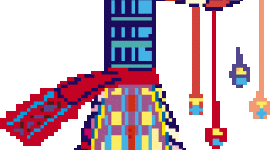Intersex Survivors of Domestic Violence
All of these terms are more likely to be heard in a therapist's office than a shelter, but knowing them can help one understand the complexities facing those who transcend stereotypes of gender expression or physical sex: including those who are usually known as intersexual.
An intersex or intersexual person has a body with external sexual characteristics typical of both male and female bodies. Nonetheless, in our society, children who are born intersexual are nearly always assigned a male or female gender role, although because of external sexual ambiguities, that assignment may not occur at birth. Intersexual children in the United States typically have their genitals surgically altered before age three to conform to gender assignment.
Intersex Survivors
In preliminary data, the Gender, Violence, and Resource Access Survey of trans and intersex individuals found 50% of respondents had been raped or assaulted by a romantic partner, though only 62% of those raped or assaulted (31% of the total sample) identified themselves as survivors of domestic violence when explicitly asked.
Clearly, intersex survivors exist. There are many reasons why so few intersex survivors are served by the community that typically aids and advocates for survivors of domestic violence. This early punishment for simply expressing gender identity leaves many scars, but the experiences that lead intersexual domestic violence survivors to believe that it's normal for "people like me" to live with abuse only increase in magnitude as the intersex survivor matures.
Perhaps the most damaging force is the one that teaches intersexual persons that "helping" institutions are often anything but, and may actually harm them. Although these stories' power is anecdotal and not statistical, they and others like them are widely known and retold among intersex individuals. Because of the extreme cruelty and casual indifference of authorities and institutions exemplified in these common stories, an intersex survivor may fear an unknown service institution more than a familiar abuser.
A second level of fear intersex survivors face when seeking help is the possibility that their intersex status, if previously hidden, might become known and expose them to more violence, as in the Brandon Teena case. Exposure might also lead to the loss of a job, as very few jurisdictions provide employment discrimination protection to intersexed persons, and stories of job loss or workplace harassment upon exposure are legion.
Should a intersex survivor decide to brave these risks and seek help despite them, she or he faces other barriers. Some information suggests that intersex survivors have frequently been multiply abused for years or decades. Often a intersex survivor has a unique body and/or a unique vulnerability to the emotional aftermath of sexual violence; either can make difficult or impossible discussing this abuse with an unfamiliar victims' advocate.
Related to this problem is the shame and self-doubt that is endemic in this community, due to the pressures intersex persons have felt from their earliest years to deny their feelings and conform to others' expectations. Adding to this shame and self-doubt is the widespread perception that intersex individuals are mentally ill. Abusers use this shame and self-doubt against their intersex victims to undermine their victims' perceptions and to convince them that no one else will want them.
next: A Native American Perspective on the Theory of Gender Continuum by DRK
~ all inside intersexuality articles
~ all articles on gender
APA Reference
Staff, H.
(2007, August 9). Intersex Survivors of Domestic Violence, HealthyPlace. Retrieved
on 2025, November 27 from https://www.healthyplace.com/gender/inside-intersexuality/intersex-survivors-of-domestic-violence

